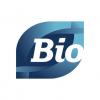
BIO Releases 5th Annual Emerging Therapeutic Company Trend Report Showing Record Year for Venture Capital Funding
Washington, D.C. (May 31, 2019) – Today, the Biotechnology Innovation Organization (BIO) released the 2019 Emerging Therapeutic Company Trend Report, highlighting ten years (2009-2018) of biotechnology funding and deal making across five areas: venture capital, Initial Public Offerings (IPOs), follow-on public offerings, licensing, and acquisitions. The report also contains a 2019 snapshot of the industry’s clinical pipeline to highlight the significant contribution of emerging companies.
Some of the key findings include:
- Venture Capital: A record $12.3 billion in venture funding went to U.S. emerging therapeutic companies in 2018, with 95% toward novel R&D and only 5% into drug improvement R&D for existing drugs. Venture investment into innovative U.S. therapeutic companies continues to outpace Europe (5.7x), Asia (4.6x), and the rest of the world (35x) despite a record $5.2 billion for Ex-U.S. companies. First-time Series A financing broke a record in the U.S. with 109 new companies receiving funding, indicating a robust interest in early-stage biotech.
- IPOs: U.S.-based R&D-stage emerging therapeutic companies were able to raise $5.1 billion from 47 IPOs in 2018, a record dollar amount and the 2nd highest number of IPOs in a decade. Ex-U.S. based R&D-stage emerging therapeutic companies raised $2.3 billion from 22 IPOs, a record dollar amount.
- Follow-On Public Offerings: Public market follow-on offerings for U.S.-based R&D-stage emerging therapeutic companies remained strong, with $11.5 billion raised in 2018 across 118 offerings (valued at $10 million or more). Ex-U.S.-based R&D-stage emerging therapeutic companies raised $3.2 billion from 28 transactions in 2018, a record year in dollars raised and the number of financings.
- Licensing: Global R&D-stage licensing deals (valued at $10 million or more) brought in $9.1 billion in upfront payments, a 107% increase over 2017. Asian emerging company assets accounted for a record 18 of these deals in 2018, albeit reaching only 11% of the total funds raised.
- Acquisitions: The number of global R&D-stage emerging therapeutic company acquisitions rebounded from a decade low of 21 in 2017 to 28 in 2018. A record $32.5 billion was paid upfront for the 28 R&D-stage companies. U.S.-based companies accounted for 66% of the R&D-stage emerging company acquisition targets. The number of global market-stage emerging therapeutic company acquisitions reached a decade low of four acquisitions for $2.2 billion (upfront).
- Global Clinical Pipeline: Total active clinical-stage programs reached a record 6,984 with emerging companies accounting for 73% of these programs. Emerging companies have 94 marketing applications for new drugs (NDA/BLAs) under review at the U.S. FDA. U.S.-based emerging companies account for 62% of these submissions.“A favorable public policy environment for investment and licensing is critical for today’s emerging biotechnology companies searching for cures and treatments for patients suffering from devastating and life-threatening diseases,” said BIO President and CEO Jim Greenwood. “As this report demonstrates, biotech investors and innovators continue to view the U.S. and its free-market system for biopharmaceuticals as the most hospitable environment for their lifesaving research, investing nearly six times as much venture capital into U.S. firms than in Europe – where governments, not markets, often determine the price of drugs.
“As Asia-Pacific countries accelerate their investment into biotech, it will be more important than ever for Congress and the Administration to ensure that proposed changes to America’s pharmaceutical reimbursement system do not jeopardize U.S. leadership in biomedical innovation.”
The report, authored by David Thomas and Chad Wessel of BIO’s Industry Analysis team, documented decade highs in 2018 for both investment and deal-making, and highlighted the indispensable role emerging of biotechnology companies in filling the pipeline of new treatments and cures.
“Overall, this report shows that the state-of-the-industry has been strong in recent years and we expect to hear more about recent success stories from emerging companies at next month’s BIO International Convention in Philadelphia,” said report co-author David Thomas, CFA, BIO’s Vice President for Industry Research. “Emerging companies now drive 73% of the clinical-stage pipeline. For this group of companies to transform the future of medicine, it is imperative that the right regulatory and financial policy environment be maintained.”
Thomas will be discussing the report’s findings at the following sessions during the BIO International Convention, June 3-7, 2019 in Philadelphia:
What’s Next: The Landscape of Innovation in 2019 and Beyond
3 PM ET, June 3
Dealmakers' Intentions: 2019 Market Outlook
12:15 PM ET, June 5
The report and other BIO Industry Analysis reports are available for download at www.bio.org/iareports.

